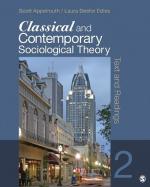|
This section contains 2,704 words (approx. 10 pages at 300 words per page) |

|
Robert Nisbet's article is a summary of his lifelong views, expressed most fully in The Sociological Tradition (1966). According to Nisbet, the core of classical sociology—evinced in the work of Karl Marx (1818–1883), Alexis de Tocqueville (1805–1859), Émile Durkheim (1858–1917), Max Weber (1864–1920), Ferdinand Tönnies (1855–1936), and Georg Simmel (1858–1918)—is a set of five polarities or "antitheses." Together the antitheses spell out the difference between traditional and modern societies: community versus society, authority versus power, status versus class, sacred versus secular, and membership versus alienation. Sociology, for Nisbet, arose in response to the two great revolutions that brought about the change from tradition to modernity: the industrial revolution, beginning in England, and the democratic revolution, beginning in France.
It would be simplistic to say that for Nisbet classical sociology preaches conservativism. Nisbet is aware, for example, of Durkheim's liberalism and of his concern for...
|
This section contains 2,704 words (approx. 10 pages at 300 words per page) |

|


![View Sociology Sociology and Religion [first Edition]](https://d22o6al7s0pvzr.cloudfront.net/images/bookrags/aero300/content/btn_prev.png?1706062909)
![View Sociology Sociology of Religion [first Edition]](https://d22o6al7s0pvzr.cloudfront.net/images/bookrags/aero300/content/btn_next.png?1706062909)
